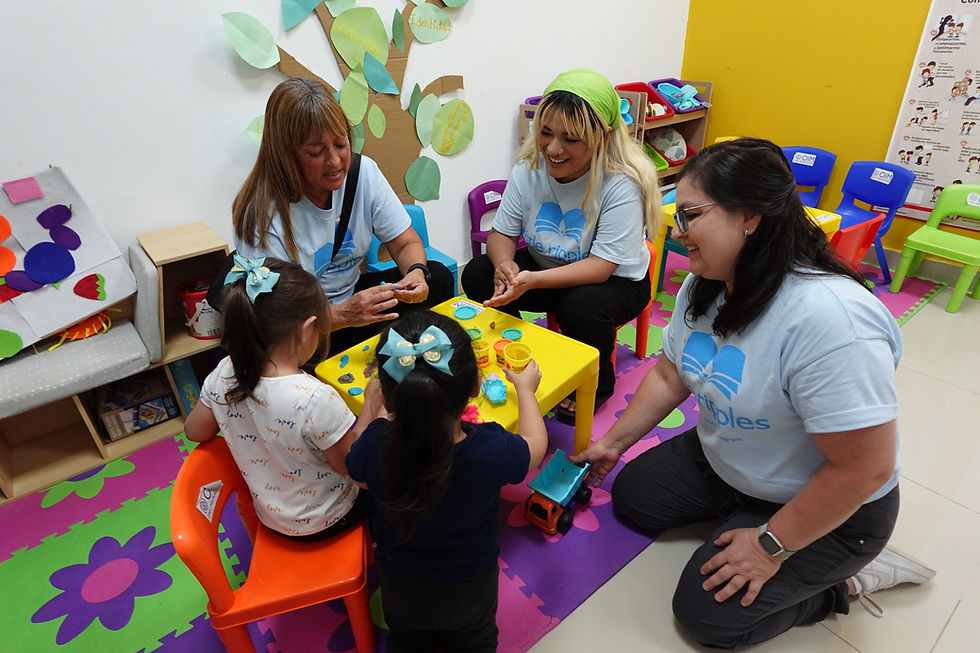Honolulu Star Advertiser: Youth soccer club scores big with gift to youths in Darfur
- Jessica Birzin
- Oct 7, 2016
- 3 min read

This article was originally posted on Honolulu Star Advertiser.
By Lee Cataluna Posted October 07, 2016 October 7, 2016
Honolulu attorney Paul Shimomoto opened his email and just stared at the photos. “I couldn’t do anything for about 10 minutes,” he said. “I just keep looking at those pictures, thinking, ‘It got there!’”
Soccer academies are being established in refugee camps in eastern Chad as a way to help the children of Darfur and a bit of normalcy in their lives. Youngsters sport Honolulu Galaxy jerseys while playing. The images show children from Darfur in a refugee camp in eastern Chad. The children — kids who have seen the atrocities of war — are ebullient, playing a happy game of soccer in the vast African desert, wearing brightly colored jerseys bearing the name “Honolulu Galaxy.”
This wasn’t what Shimomoto had in mind when he started a youth soccer club, but then again, it was exactly what he was aiming for: to provide kids with the opportunity to play and compete, sure, but to also use soccer as a vehicle for character development and service leadership.
Shimomoto started Honolulu Galaxy Futbol Club in 2008. He had played high school soccer at ‘Iolani and at the University of Denver and was looking for opportunities for his children to play. “There are some soccer clubs that tell 8-year-olds, ‘Look, not everyone gets to play,’” he said. “I understand being competitive, but really? There has to be a better way.” He gathered together like-minded parents and formed a nonprofit with a board of directors who believed in values like teaching leadership and emphasizing community service.
At firrst the soccer teams started out with small projects, like cleaning up the parks where they practice and play. But then a parent, ‘Iolani teacher Kimi Frith, told Shimomoto about soccer camps being established in Darfur refugee camps. All they wanted was some gently used uniforms and gear, Frith told him.
“It was pretty easy,” he said, “We just asked the families to bring their gently used stuff, and we sent it. It was almost too easy.”
Then he saw the pictures of the children in Africa wearing their gear. That got him thinking. There was so much more Honolulu Galaxy could do.
The soccer club has grown to about 300 boys and girls in all age brackets. Registration costs $550 a year. The board of directors decided to give $10 from each child’s registration to iACT, a humanitarian organization that brings athletics and education to refugee camps in eastern Chad. “They’re using soccer as a way to repair these children’s lives,” Shimomoto said. “Nothing we do even comes close to that level.” Honolulu Galaxy became the first “sister club” for one of the refugee teams. They are establishing pen pal connections. They sent video to their new friends in Africa. “The kids did a ball signing. They passed around balls that they donated and wrote messages on them, things like, ‘From your friends in Hawaii.’ We heard that was a big hit.”
Knowing that his players are making an impact so far away should be satisfying, but Shimomoto isn’t satisÒed. He’s sure they can do more.
“Sports are important — they teach kids great lessons — but it can become very egocentric,” Shimomoto said. “There’s a larger perspective on youth sports and what kids can get out of it.”
Reach Lee Cataluna at 529-4315 or lcataluna@staradvertiser.com.


